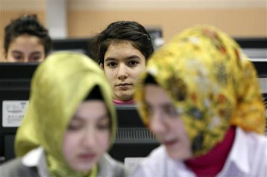Gültekin: Islam and death
Levent Gültekin, who is a former Islamist and the author of a recent, bestselling book on the moral “defeat” of political Islam in power in Turkey, writes on the Diken news site that the first thing that comes to our mind when we think about the Islamic world is: death. We are not even afraid of saying, as we have done after the accident in which nearly one thousand pilgrims were killed, “How nice it was that these blessed people died at a blessed time, at a blessed place”! The religious understanding that prevails in the Islamic world is one that exults not in life, but death. It is because this religious understanding prevails that Muslims are utterly incapable of building cities that you can live in; it is because they have surrendered to this understanding that they do not bother to work on how to live a better life. In reality, as Muslims we are the living dead. That is because our lives have no value in these lands. And because death is valued more, things such as serenity, ethics, friendship, courtesy, knowledge, being principled – in short, to live like a human being – have no value. We cannot nourish any hope that we are ever going to be able to change this understanding, which prevents us from being like humans, and have it accepted by the Islamic world. So let us at least cease to preserve this religion – which is condemned to this understanding – as the focus of our lives.
The Islamization of Turkey: Erdoğan’s Education Reforms
By Svante E. Cornell (vol. 8, no. 16 of the Turkey Analyst)
The growing efforts at Islamization of Turkish society have largely gone unnoticed. For many years, Islamization was the dog that did not bark: in spite of dire predictions by secularists, the AKP did not introduce conspicuous efforts to Islamize Turkey. But since 2011, this has changed. The main exhibit is the education sector, which President Recep Tayyip Erdoğan has remodeled to instill considerably more Islamic content, in line with his stated purpose to raise “pious generations”. Ultimately, the Islamic overhaul of the education system is bound to have implications for Turkey’s civilizational identity, and on the choices it will make on where it belongs politically.



